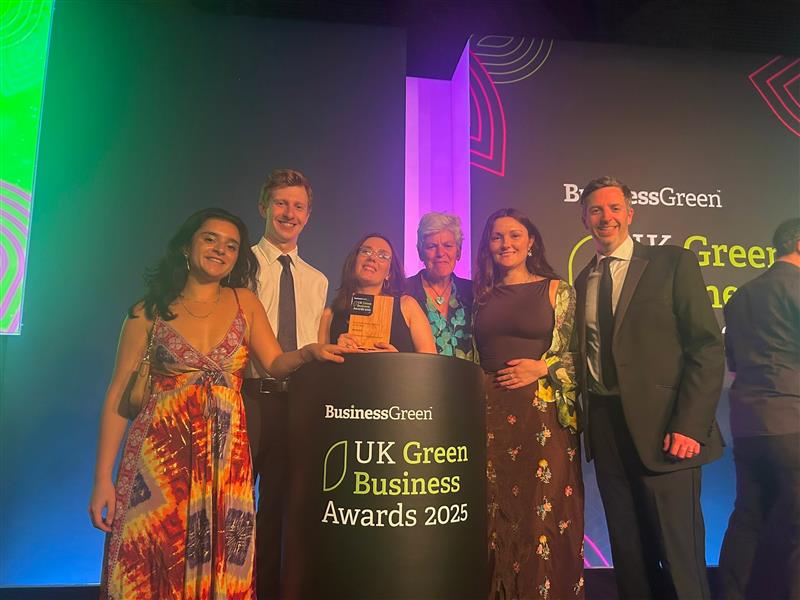The Economist Sustainability Summit 2020

On March 26, The Economist Sustainability Summit 2020, of which Greenhouse PR is media partner, will take place in London. Framed by the IPCC warning to reduce CO2 emissions to zero by 2050, the Summit will bring together business, government, activism and thought-leaders from around the world to discuss how we can urgently transition to a safe, net-zero, living planet.
The Economist Sustainability Summit 2020
Our world is already witnessing climate catastrophes at 1C global heating above pre-industrial levels – and is on track to triple temperatures by 2100. Yet government leaders are still not committing to stop emissions fast enough to protect our communities.
“Limiting warming to 1.5 degrees Celsius is not impossible, but will require unprecedented transitions in all aspects of society,” warned Summit speaker, Hoesung Lee, Chair of the Intergovernmental Panel on Climate Change (IPCC), on release of the panel’s report in October 2018.
It’s clear that we can’t wait for national pledges ahead of the COP26 climate talks. The wider economy must join forces to drive the deep emissions cuts required to curb climate breakdown.
From policy, plastics and protest to fashion and finance, influential leaders at The Economist Sustainability Summit 2020 will outline how we must collaboratively steer the economy in an extreme transitional u-turn to save our living planet.
PLASTIC POLLUTION
By 2050, oceans risk housing more plastic than fish. After the US, Japan uses more plastic than any other country. At last year’s G20 Osaka Summit, countries adopted the ‘Osaka Blue Ocean Vision‘. Now Japan, like every nation, faces the challenge of translating words into action.
In a panel sponsored by the Government of Japan, hear from business leaders including Martin Stuchtey, Founder and managing partner, SYSTEMIQ and Fuyuhiko Kubota, deputy director, TOYOBO, who will cover pivotal topics in the fight against plastic, including incentivising the private sector, developing-country resources and plastic substitute technology, to explain how we can sustainably finance the end of plastic pollution.
GLOBAL CLIMATE ACTION
An overarching question for the Summit will be how to scale up action fast enough. Exploring which measures can make the greatest difference, Virginie Helias, Chief sustainability officer, Procter & Gamble and Jane Ambachtsheer, Global head of sustainability, BNP Paribas Asset Management, will ascertain what can be done in the timescales – and if the economics add up.
To scale local action, non-state actors such as local governments and businesses would benefit from adopting national models. While there is a worrying lack of bold leadership to follow, many countries are moving toward higher ambitions.
In 2019, the UK government committed to reaching net zero greenhouse gas emissions by 2050. Hitting this goal will mean extraordinary work and collaboration from regulators, business and finance, as well as consumers.
Probing into the UK’s prospects of reaching its net zero target, Gabrielle Ginér, Head of environmental sustainability, BT, Elaine McKay, International affairs director, JTI, Nicolas Mackel, Chief executive, Luxembourg for Finance and Simon Reddy, Director, international environment, The Pew Charitable Trusts will examine how business can do its part in making this goal a reality.
The two panels will be followed by a special interview on the unparalleled need to unite behind the climate science, with Hoesung Lee, Chair, IPCC, from Daniel Franklin, Executive and diplomatic editor, The Economist.
PEOPLE POWER
Pioneering brands and policy will ultimately shift the economy toward safer climate boundaries, yet people-powered protest is sparking the mass behaviour change that business and government leaders need to act.
In a fireside chat, Extinction Rebellion co-founder Gail Bradbrook will share her thinking on the global movements which have seen peaceful climate activism put pressure on the world’s most powerful businesses to change for good.
The corporate world can learn a lot from the co-operative nature of Extinction Rebellion. Whether or not their boards realise it, the shift business needs to make in order to meet global environmental goals will be predominantly collaborative, rather than competitive.
Hear directly from powerful C-Suite executives who will ask how companies can flip long-standing norms and bring different sectors together to create new industry standards, in a panel with Guy Grainger, EMEA chief executive, JLL, Douglas Lamont, Chief executive, Innocent Drinks, Pascale Wautelet, Vice president, global research and development, Avery Dennison and Adam Freed, Principal, sustainability practice, Bloomberg Associates.
CIRCLE ECONOMY
The economic model that conscious business leaders must adopt is no mystery. The circular economy has long been proven as the direction we need to head. But reality remains far short of the concept’s potential.
Discussing how circular, waste-free economic change can be accelerated, Mark Shayler, Founder, Ape, Vanessa Wright, Group vice president, sustainability and responsibility, Pernod Ricard, Andreas Ahrens, Head of climate, Inter IKEA Group and Erik Lindroth, Sustainability director, Tetra Pak North Europe will join a circular-style moderated panel – with each speaker interviewing the next on their left – to consider key topics including consumer participation and technologies that support circular economics.
Beyond the system structure itself, we also need workers who are skilled to lead a green economy. Hear from Roberto Suarez Santos, Secretary-General, International Organisation of Employers on the requirements a zero-carbon or circular economic workforce must adopt to make the transition work for everyone.
ECO ANXIETY
Everyday discussion about ambitious climate policy or new green jobs is inspiring for many, but it is also exhausting. As professionals in this space, we are faced with stark, overwhelming truths about the future of our communities that most people don’t see. Sadly, eco anxiety is now a recognised psychological state and one of the first indirect impacts of climate breakdown on humans.
In what should be a fascinating talk, Susan Clayton, Whitmore-Williams professor and chair of psychology, The College of Wooster, will lay out the knock-on societal affects of eco anxiety as well as the hidden benefits of using anxious energy to leverage a powerful, positive force for change.
Anxiety, anger and grief are common emotions which urge people to join civil moments such as the climate strikes and Extinction Rebellion, or support legal action against national inaction. But it isn’t just people suing governments, or fishermen and farmers suing the fossil fuel industry.
Over the next 10 years we can expect to see increasing legal jeopardy to businesses that fail to properly tackle dangerous runaway climate change. Already, states and cities are starting to file claims against current and future losses caused by the climate crisis.
James Thornton, Chief executive, ClientEarth and Nigel Brook, Global head of climate risk practice, Clyde & Co will outline the risk this poses to companies and their insurers and the measures that must be taken now to avoid this brand new liability category, in a world of growing climate chaos.
A BETTER WORLD
The latter end of the day-long Summit will piece together a positive visualisation of our future, starting with a look at the rapid progress seen in sustainable fashion.
Last year The Economist examined the environmental credentials of the world’s fashion industry. Livia Firth, Creative director, Eco-Age, will provide an insightful one year check-up on the sector’s progress. Delving into the changes that the last 12 months have brought, she will ask us to question if sustainable fashion is just a passing gimmick, when luxury bags made from ocean plastic cost over $1,500.
But that’s today. What about tomorrow? What if the world did stop buying fast fashion? Or went 100% vegan? Or never flew again? Finally, the Summit will jump into imaginary but entirely plausible scenarios under fundamental behaviour change.
Wrapping up with an audience vote on the best option, an interactive scenarios session will be led by Earthling Ed, Vegan speaker and educator, Peter Kalmus, Climate scientist and author and Kenny Jacobs, Chief marketing officer, Ryanair.
Closing The Economist’s Sustainability Summit 2020, the spotlight will be on how to scale up the innovation covered by the day’s speakers. Binish Desai, Founder, Eco Eclectic Tech, Recycle Man of India, Ann Tracy, Vice president, global sustainability, Colgate-Palmolive and Matthias Berninger, Senior vice president, global head of public affairs and sustainability, Bayer AG will discuss how big brands can give a helping hand to startups, drawing on radical pioneers that are shaking up the business world with positive social and environmental change.
Find out more and get tickets for The Economist Sustainability Summit 2020.
Greenhouse PR works with organisations and leaders who are pioneering climate action. Whether it’s energy, fashion, finance or farming, if you’ve got a great story and need our help to tell it, get in touch with the Greenhouse team on 0117 214 1250 or email info@greenhousepr.co.uk.


